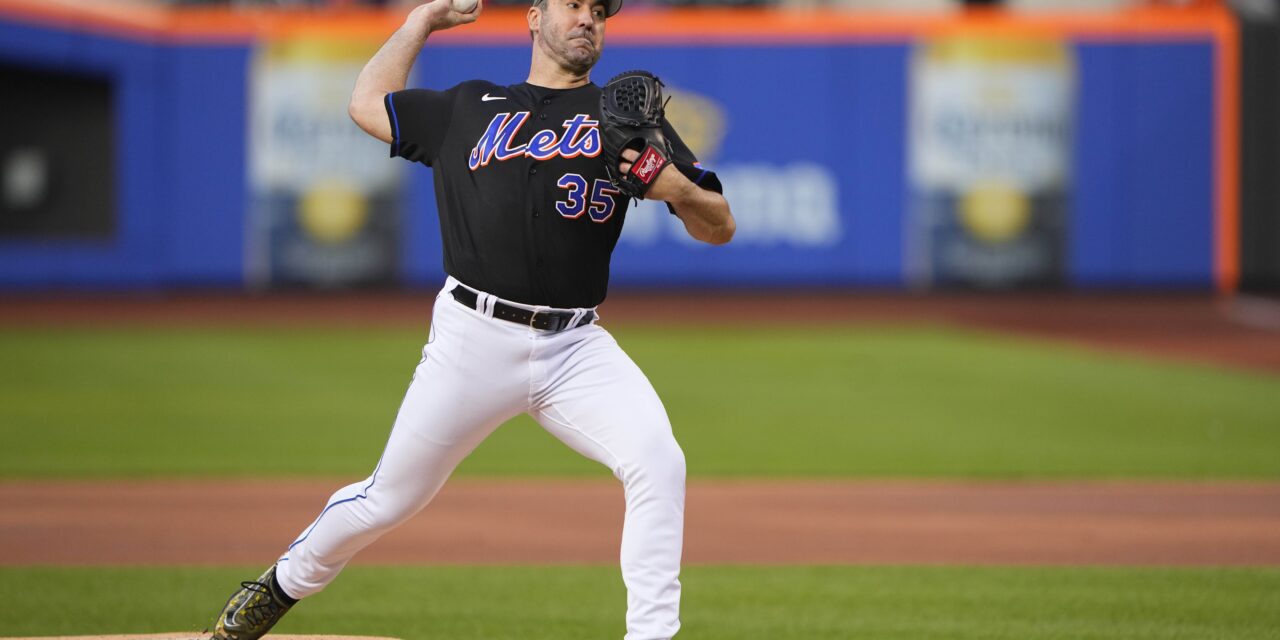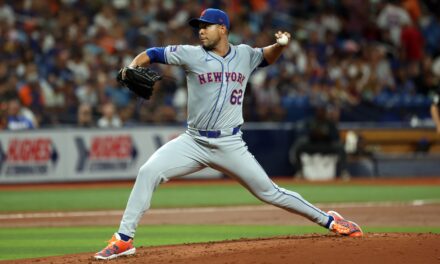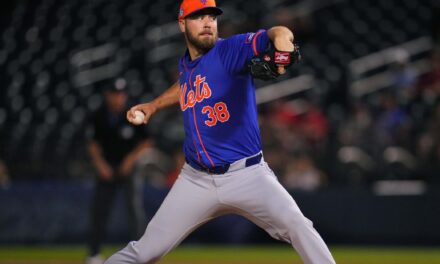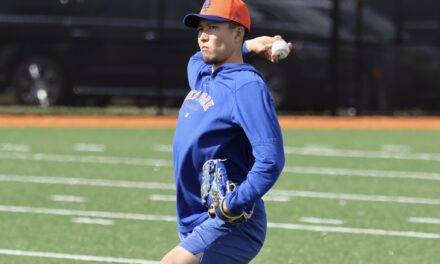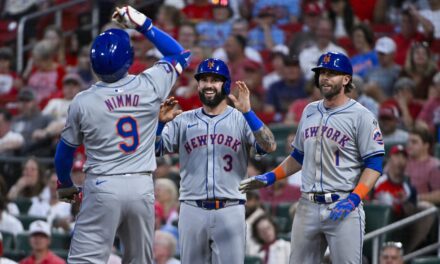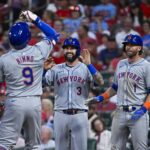Entering Friday night, Justin Verlander was in the midst of his most consistent stretch as a Met. The right-hander had allowed just two earned runs in his last 18 innings, and looked to open the second half strong. However, Verlander struggled with his control from the very start, leading the Mets to their eventual 6-0 loss.
Verlander threw 23 pitches in the first inning, issuing walks to Freddie Freeman and Max Muncy, while also striking out Will Smith and J.D. Martinez to escape the inning unscathed. The 40-year-old threw 23 more pitches in the second inning, but again escaped with the score tied at zero by picking off James Outman after issuing him a walk.
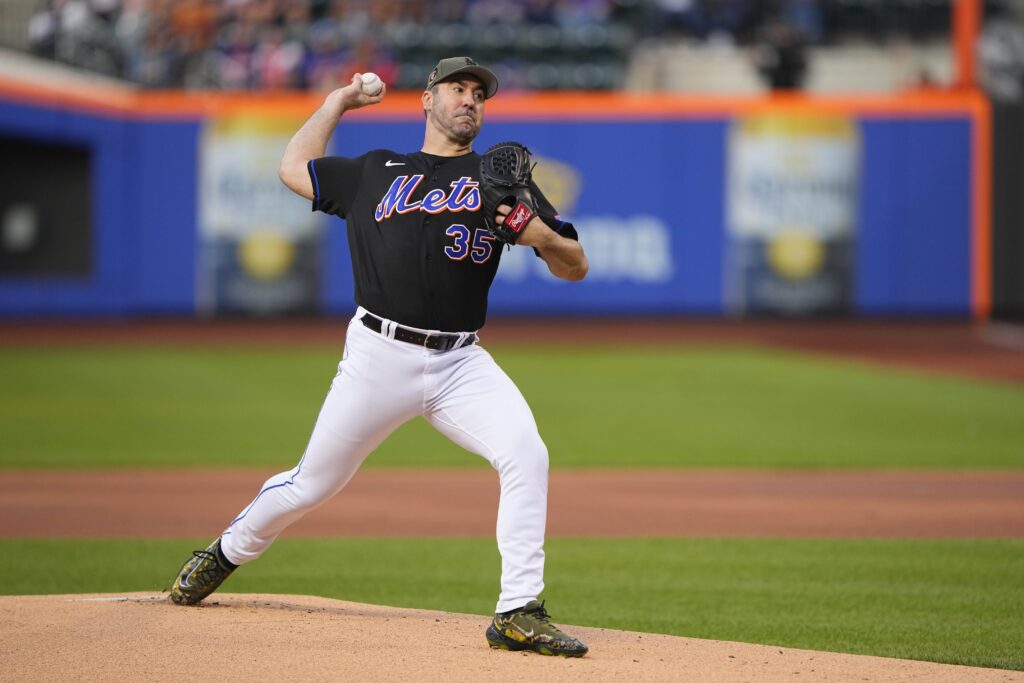
Verlander settled down in the third and fourth innings. He worked a 1-2-3 inning in the third on just 11 pitches, ringing up Freeman on a slider. Verlander tossed another clean inning in the fourth, striking out both Smith and Muncy on fastballs.
In the fifth inning, Verlander retired David Peralta on a fly-out but ran into trouble shortly thereafter. The right-hander got ahead 1-2 on Jason Heyward, but the 33-year-old laid off a couple of curveballs below the zone to work a walk. Verlander got into a full count against Outman before missing with a fastball below the zone for his fifth walk of the night. With two men on, Verlander missed badly with four pitches to Miguel Rojas, issuing his sixth free pass of the night. This was the first time since April 21, 2017, that Verlander had walked six batters in a game. Mookie Betts followed with an RBI single for the Dodgers first hit of the night, and Freeman delivered the biggest blow of the night, a two-run double. Verlander struck out Smith and got Muncy to fly out to end the frame, but was showered with boos as he exited the field.
“The first couple I thought were a bit of just finding my rhythm after the All-Star break, the one inning I just lost feel, hadn’t been out of the stretch for a little bit, (it’s) inexcusable,” Verlander said after the game. “You can’t walk six guys and expect to win a ballgame or give your team a chance. I was able to navigate the first few, but it just can’t happen, especially with the bottom of the order there.”
Justin Verlander says his six walks tonight were "inexcusable"
"Can't walk six guys and expect to win a ballgame or give your team a chance." pic.twitter.com/l1dZoi5cVc
— SNY (@SNYtv) July 15, 2023
Verlander’s average fastball velocity was up, averaging 94.7 miles per hour compared to his season average of 94.4 – and he topped out at 97.9 MPH. However, he got just nine called strikes and eight whiffs on the pitch. Overall, Verlander had a disappointing 27% CSW% (called strikes plus whiffs) on the night. Of the 104 pitches he threw on Friday, 61 of them were out of the zone. Verlander also didn’t get a lot of chases, registering just a 23% chase rate. As a result, Verlander walked six batters on Friday, something the former Tiger hadn’t done since April 21 of 2017.
“It sucks, this was not a good game of baseball in any facet,” Verlander said. “But that doesn’t mean we can’t go on a roll, we played good baseball going into the break and I’ll be damned if one game is going to be the thing that says ‘we sure can’t go on a roll.'”
Walks have plagued Verlander all season. This start marks the second time this season that he has walked at least four batters in a game, something he didn’t do at all in 2022. His walk 8.0% walk rate, while not outlandish, is his worst mark since 2017. The biggest contributor to Verlander’s walk rate has been the first pitch. The 40-year-old’s first-pitch strike rate is just 52.2%, which is down significantly from his 62% mark in 2022 and his worst rate in the pitch-tracking era. Verlander is also throwing pitches in the strike zone at the worst rate in his career (46.9%) and his 28.8% chase rate is his lowest number throughout a full season since 2015. Verlander’s ERA is now up to 3.72 on the season, almost a full two runs above his ERA from 2022 (1.75).


